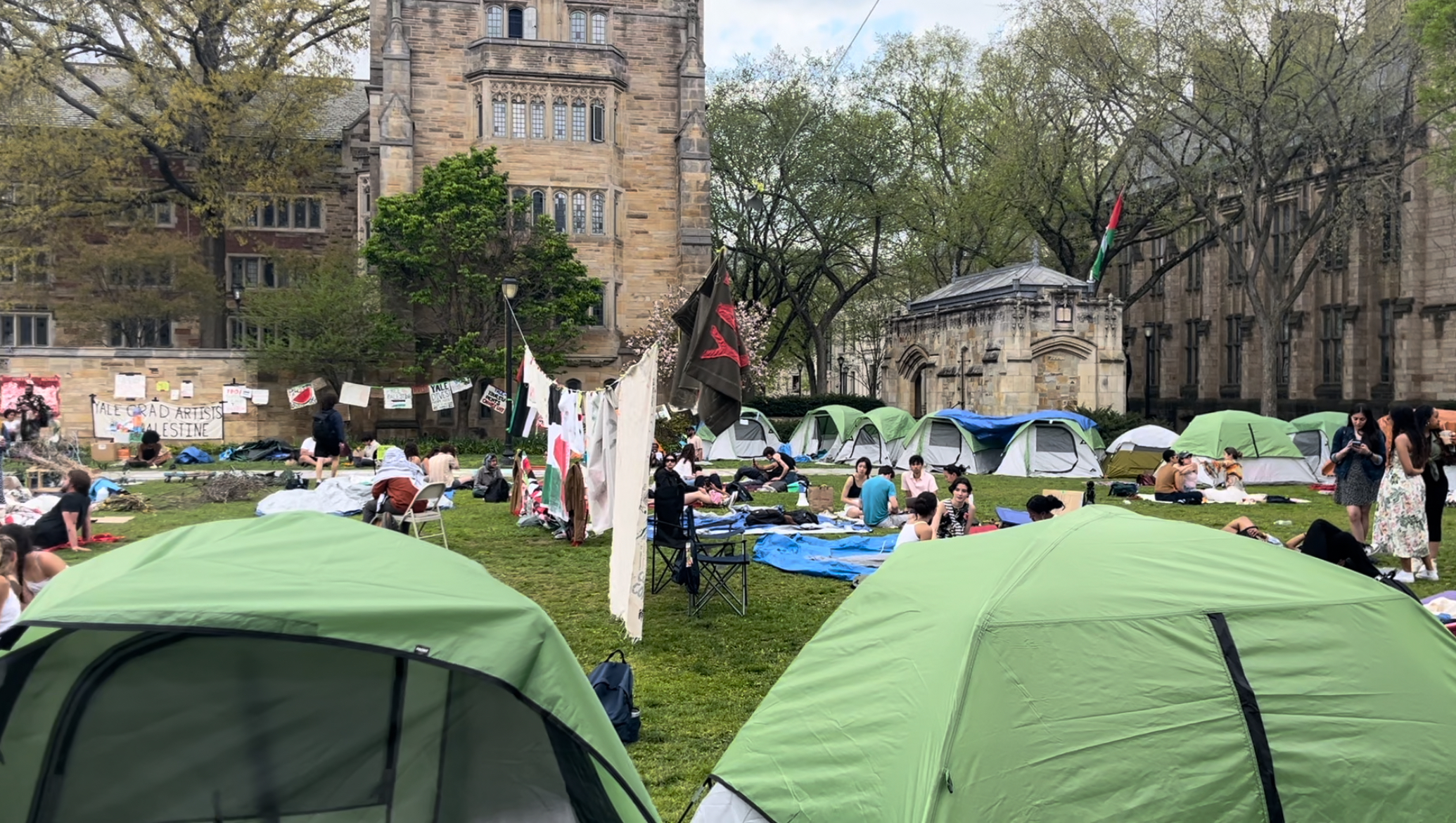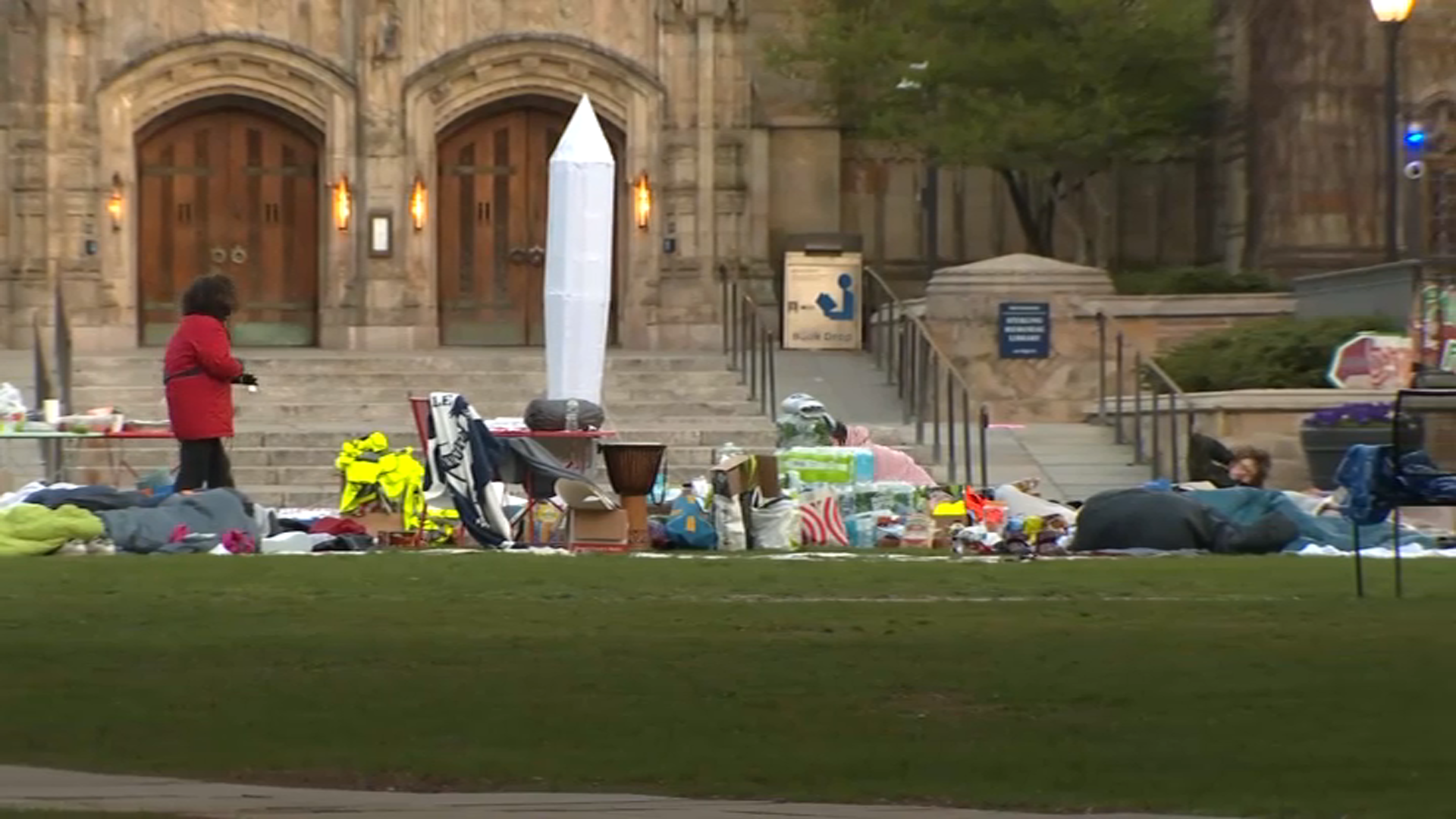Encampments set up at pro-Palestinian protests were taken down at Yale University and the University of Connecticut on Tuesday morning and police made some arrests at UConn.
UConn officials said police removed tents and tarps on the campus in Storrs and arrested protesters who refused to take down tents and disperse.
Officials said a total of 25 people were arrested at UConn, including two dozen students and one former student. They were all charged with criminal trespass and disorderly conduct, a spokesperson said.
The protests have been going on for a couple of weeks and encampments grew on the campuses.
Get top local stories in Connecticut delivered to you every morning. Sign up for NBC Connecticut's News Headlines newsletter.
UConn said the university had shared guidelines last week and some of the people who had gathered violated the guidelines by putting up tents. By Monday afternoon, there were around 20, according to the school.
The group, UConn said, was warned several times that they were free to be in the space and exercise their free speech rights, but the tents needed to be taken down and this was ignored.
On Tuesday morning, police directed protesters four times to remove the tents and disperse, but those orders were ignored, according to UConn. Then, officers entered the site to remove the tents and tarps and to arrest those who refused compliance.
Protesters said they noticed an increased police presence around their tents around 5 a.m. and they officers told them to leave or they would be arrested.
Two hours later, police cleared the encampment and loaded belongings into the back of a pickup.
Muneeb Syed, president of UConn Muslim Student Association explained what the protesters are asking for.
“One is a recognition of the genocide that’s happening in Gaza right now. The other aspect is to also think about what is this university doing that supports that? We keep saying disclose and divest. We want the university to first disclose how much money is being sent overseas and to what companies.” Syed said.
“Beyond that, we want divestment. We want the university to start cutting ties. Start finding alternatives to where they invest that money,” Syed added.
Graduation is approaching for UConn. Students are taking finals this week and commencement is happening this weekend.
So far, none of that has been impacted.
The camp is also down at Yale and the protesters have left.
Yale university officials said an encampment was set up on Yale’s Cross Campus Sunday afternoon and the school gave protesters final warnings on Tuesday that the camp must end or they will face discipline, which could include suspension for violating university rules and arrest for trespassing.
New Haven police said Tuesday morning that they had around 30 officers on the Yale campus and had not made any arrests.
Yale student Chisato Kimura said the group at Yale includes students as well as community members.
She said protesters were awoken at 6 a.m. by Yale officers and police gave them 15 minutes to vacate the encampment or be arrested, so everyone did. The protesters then moved to the sidewalk along College Street and continued the protest there.
Yale staff took down the encampment and went through the belongings.
Kimura said the Dean of Yale College sent a letter to student marshals on Sunday, warning that they’re in violation of university policy and that disciplinary action, including arrests, could be taken if they don’t vacate Cross Campus where the encampment is set up.
“Yale police has made it very clear that it’s all in the hands of the Yale administration, it’s what Yale administration wants to do, if they want to come to the table in good faith and negotiate,” Kimura said.
Last Monday, police arrested around 60 people who were protesting in a nearby square in New Haven.
Protesters at Yale did not have a specific plan, but said they are not giving up.
“These are anti-war protests, and the administration should understand that anti-war protests are things that students do,” Yale Professor of Philosophy Jason Stanley said.
In a statement, the Slifka Center for Jewish Life at Yale said in part that the campus environment over the last week has crossed the line into open antisemitism.




